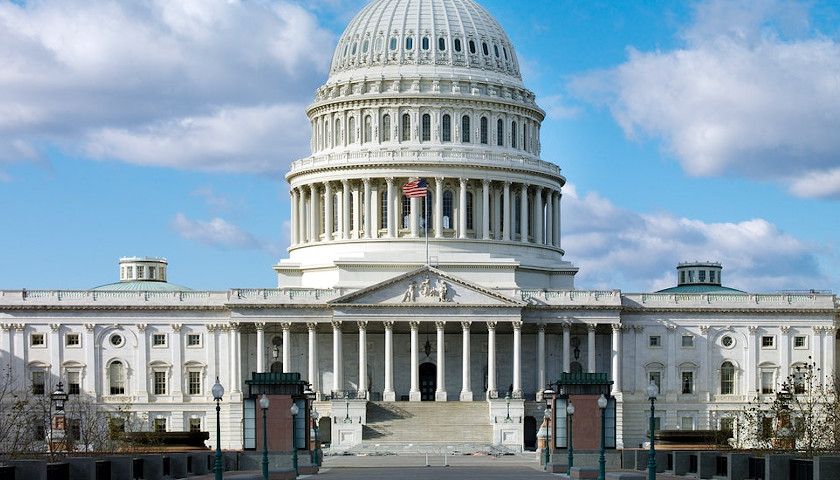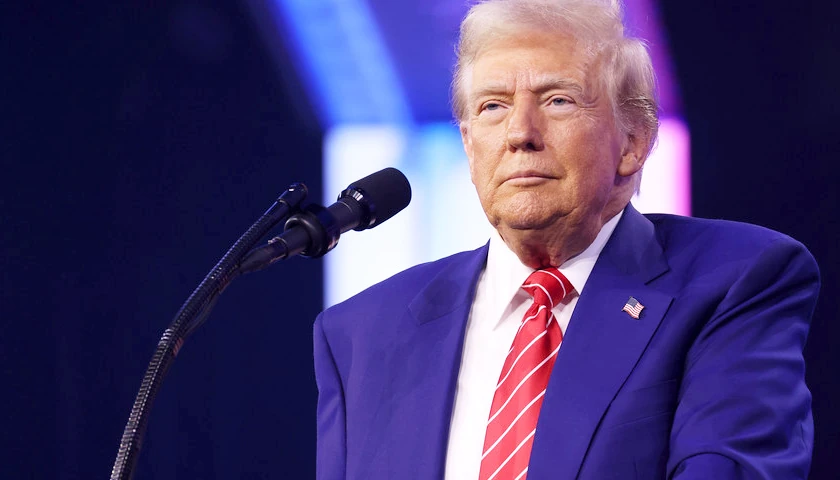by Andrew Trunsky
President Joe Biden’s administration and Democrats in Congress have vowed to press forward with the president’s $1.9 trillion coronavirus relief package amid Republican objections to the bill’s size, even if they do so without any GOP votes.
 Biden has argued that the relief package is not only popular among a majority of Americans but is also necessary to combat the economic toll imposed by the coronavirus pandemic. Though Biden campaigned on a message of unity and bipartisanship, his administration rejected a Republican pitch to split the plan into smaller pieces and has said that it must move quickly to pass the package even if it means doing so without Republicans’ help.
Biden has argued that the relief package is not only popular among a majority of Americans but is also necessary to combat the economic toll imposed by the coronavirus pandemic. Though Biden campaigned on a message of unity and bipartisanship, his administration rejected a Republican pitch to split the plan into smaller pieces and has said that it must move quickly to pass the package even if it means doing so without Republicans’ help.
“The very health of our nation is at stake,” Biden said on Jan. 14 when he first introduced his recovery plan. “[It] does not come cheaply, but failure to do so will cost us dearly.”
Biden’s administration has also argued that the package is necessary to beat the pandemic, touting its provisions for vaccine distribution, the reopening of schools and direct relief to American families and small businesses.
“We’ve got a lot to do, and the first thing we’ve got to do is get this COVID package passed,” Biden said on Thursday while discussing the plan.
But as House Speaker Nancy Pelosi and Senate Minority Leader Chuck Schumer reportedly lay the foundations to pass Biden’s bill, some Republicans are optimistic that Biden will change course and revert to his earlier calls for a bipartisan plan.
“The president is sincere in his commitment to bipartisanship,” Maine Sen. Susan Collins told Politico. “That’s the way he always operated when he was a senator. And from my conversations with him since the election, it seems clear to me that he wants to continue to operate that way.”
Republicans, however, have also cautioned Biden against abandoning his calls for bipartisanship.
“I think it would be wise for the new administration to work to try to get a bipartisan proposal,” said fellow moderate Sen. Lisa Murkowski to reporters on Wednesday. “I think that speaks exactly to President Biden’s comments a week ago.”
“He spoke to unity and working together. Well, we’re giving an opportunity to come together on important and timely legislation,” she added.
Wyoming Sen. John Barrasso was more pointed, telling the Associated Press that Biden should stick to what he outlined in his inaugural address.
“If there’s ever been a mandate to move to the middle, it’s this,” he said. “It’s not let’s just go off the cliff.”
Collins was one of 16 senators who took part in a weekend call with Biden outlining his relief package. Also on the call were Representatives Tom Reed and Josh Gottheimer, the Republican and Democratic co-chair of the powerful Problem Solvers Caucus.
“I’m getting a good-faith sense that the administration is trying to find common ground,” Reed said on a call with reporters on Wednesday. “But I also have a recognition that there is a plan A and a plan B. Their plan A is probably reconciliation because they can control that … but they also recognize how difficult reconciliation can be.”
“[We want to] work with them and find common ground,” he said, adding that smaller pieces of the package like vaccine aid and cash relief would likely sail through Congress with bipartisan support.
But despite Republican support for a smaller, broken-up package, the administration reiterated that it would press forward with what it had proposed and that Republicans were still welcome at the negotiating table.
“We’re open for business and open to hear from members of Congress on that,” said White House Press Secretary Jen Psaki, adding that “we’re not going to do this in a piecemeal way or break apart a big package that’s meant to address the crisis we’re facing.”
Her comments were echoed again by Biden himself, who reiterated on Friday that the unprecedented situation called for a sweeping economic recovery and pandemic aid package.
“The risk is not doing too much, but not doing enough,” he said during a meeting in the Oval Office.
– – –
Andrew Trunsky is a reporter at Daily Caller News Foundation.





